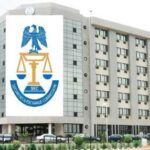Lagos State Deputy Governor, Dr. Kadri Obafemi Hamzat, has enjoined Muslim faithful to use Ramadan as a period of devotion and contemplation to rededicate themselves to doing and promoting the will of Allah in order to bring about outstanding changes that will enable humanity to prosper.
Dr. Hamzat made this call while delivering the keynote address at the 30th University of Lagos Muslim Alumni Pre-Ramadan Lecture, themed “Transformative Power of Ramadan,” held at the J. F. Ade Ajayi Auditorium of the institution in Akoka, Yaba.
“I urge Muslim faithful to use this period of devotion and contemplation to rededicate ourselves to doing the will of Allah. Wherever we are, regardless of our status, we must promote the will of Allah. Our personal resolve to create impact individually will bring about outstanding changes that will enable humanity to prosper,” he said.
The deputy governor emphasized that Muslims must promote the will of Allah and strive to replicate the heaven Allah envisioned for them. He described the month of Ramadan as sacred and urged believers to extend its impact beyond the one-month fasting period.
ALSO READ:Market timeline reduced to enhance growth – SEC DG
Speaking further, Hamzat charged Muslim clerics to align their preaching with societal values, norms, and morals to help build a better nation. He stressed that Allah’s intention for creating mankind was for them to worship and serve Him alone.
The deputy governor also highlighted some challenges facing humanity in the present day, particularly with advancements in technology and Artificial Intelligence (AI). He noted that the world has reached a critical point in human existence, with issues of social and economic significance, as well as changing orientations and perceptions that affect humanity.
He further pointed out that corruption, hunger, pervasive poverty, racism, and tribal profiling continue to threaten societies worldwide. According to him, the survival of a community depends on the extent to which individuals feel that their interests are being served, making them willing to contribute to its continuity.
“We must address these issues—and quickly. The tide of individualism, as a way of life, must be confronted with urgency. The erosion of our societal moral compass must be halted. If we fail, the consequences will be too severe to contemplate,” he warned.
In his lecture, titled “Islam and the Intersection of Humanity and Religion,” Prof. Moshood Baderin noted that Islam advocates for a well-structured and just society where citizens have access to basic necessities.
According to him, Islam harmonizes humanity and faith, encouraging good deeds, support for the less privileged, and positive contributions to society. He stressed that combining faith with service to humanity is crucial, not only during Ramadan but beyond.
Prof. Baderin further highlighted that Ramadan has transformative power, fostering a balance between one’s faith and service to humanity, ultimately promoting personal growth and positive change.
“Ramadan serves as a transformative force that strengthens both our faith and our service to humanity. It pushes us to bring out the goodness within us,” he said.
Earlier, in his welcome address, the President of the University of Lagos Muslim Alumni (UMA), Dr. Abdulmumin Alao, stated that the 30th Pre-Ramadan Lecture aimed to highlight the immense benefits of Ramadan and how Muslims can balance the demands of their faith with the rights of their neighbors, which sometimes come into conflict.
Alao noted that the annual Pre-Ramadan Lecture serves as a platform to enlighten Muslim faithful on their roles and responsibilities during the holy month and beyond.
“As an association of intellectuals, UMA decided to focus on this specific area of need when we noticed the significant shortage of Muslim professionals in the sector,” he said.
Also speaking at the event, the Vice-Chancellor of the University of Lagos, Prof. Folashade Ogunmola, represented by the Deputy Vice-Chancellor (Academics and Research), Prof. Bola Oboh, emphasized that the purpose of fasting during Ramadan is not only for self-reflection and a closer relationship with God but also to elevate the spiritual consciousness of Muslim faithful in a way that positively impacts their daily lives and the nation as a whole.
“This is the 30th lecture, and we are discussing transformative power. We hope that these transformative influences will truly be reflected in our nation as a whole.
“Nigeria is at a critical point, whether we acknowledge it or not. I hope we can channel this reflection into building a prosperous nation for everyone—young and old, rich and poor,” she said.
WATCH TOP VIDEOS FROM NIGERIAN TRIBUNE TV
- Let’s Talk About SELF-AWARENESS
- Is Your Confidence Mistaken for Pride? Let’s talk about it
- Is Etiquette About Perfection…Or Just Not Being Rude?
- Top Psychologist Reveal 3 Signs You’re Struggling With Imposter Syndrome
- Do You Pick Up Work-Related Calls at Midnight or Never? Let’s Talk About Boundaries







